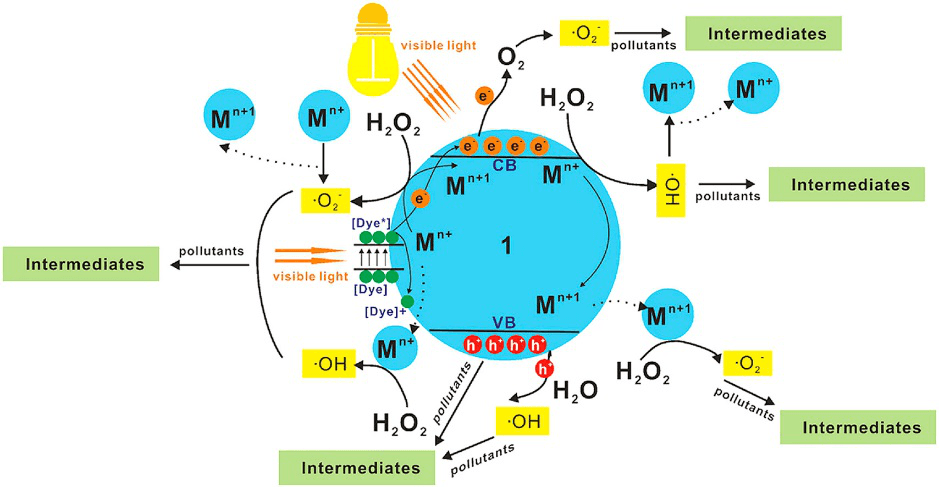Jun 17 2019
An innovative method has been used by Chinese researchers to achieve a broader application of the Fenton system, which is regarded as one of the most popular techniques used for eliminating antibiotics in water.
 The schematic illustration of the mechanism of pollutants degradation by the nanoscale “yarn ball” (Image credit: HU Yi)
The schematic illustration of the mechanism of pollutants degradation by the nanoscale “yarn ball” (Image credit: HU Yi)
However, this system would only work in a strong acid environment.
Although antibiotics have a major role to play in contemporary life, they raise concerns with regards to residue. Being a well-known water cleaning technology, the Fenton system is often used for removing the antibiotics present in water. Conversely, the system can only work effectively under specific conditions of restricted pH range of approximately 3-5.
At the Institute of Intelligent Machines (IIM), Hefei Institutes of Physical Science of the Chinese Academy of Sciences, KONG Lingtao’s team addressed these issues by producing a nanoscale “yarn ball”-like heteropoly blue catalyst, which they dubbed as Mg2Ti6Mo23O119SiW12. The results of the study have been reported in the Journal of Environmental Management.
The researchers’ work expands the optimal pH values up to neutral condition, and it is important for expanding the heterogeneous Fenton-like catalyst group and its use in the area of water treatment.